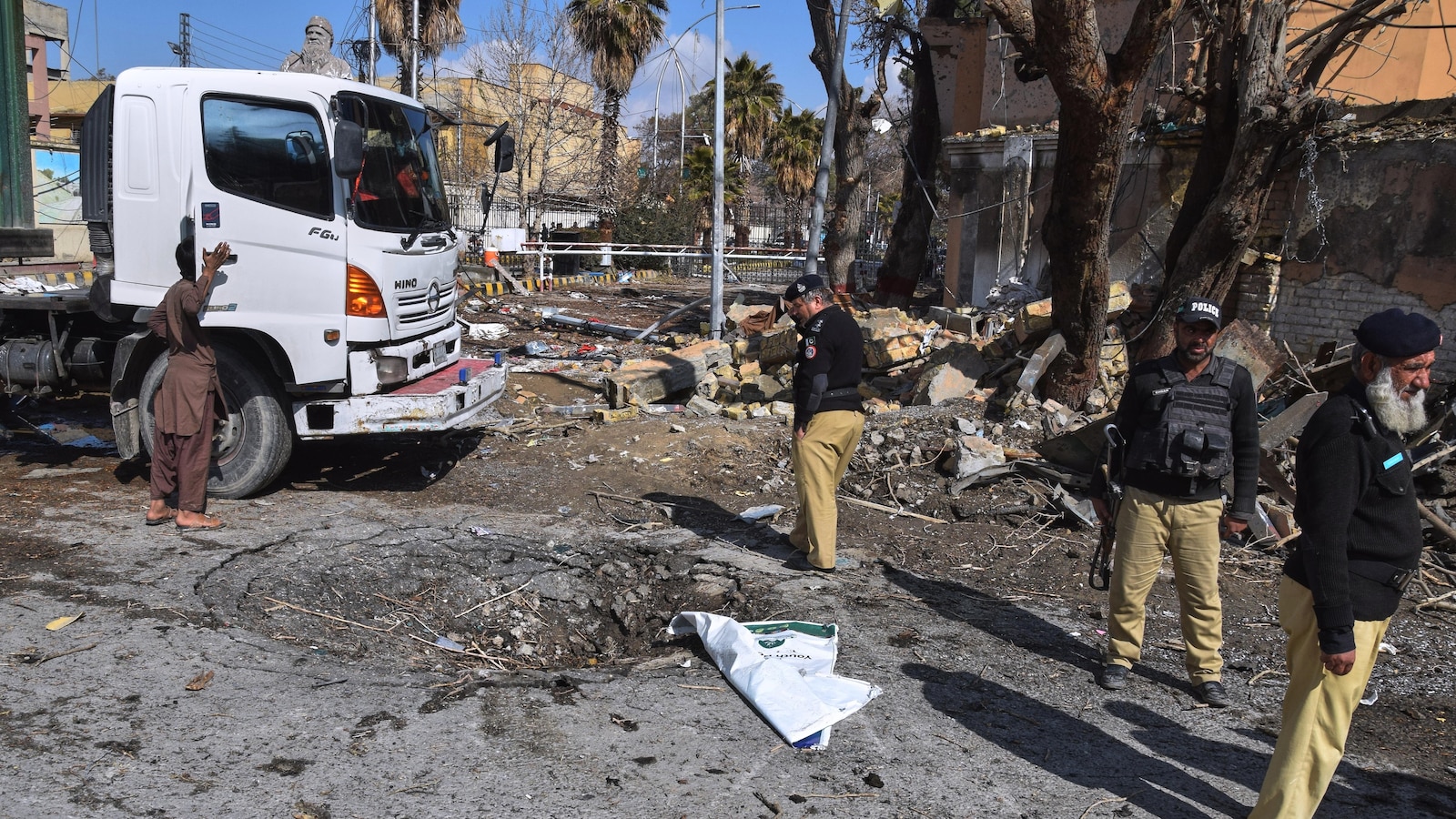83 Arrests in Landmark African Operation Against Terrorism Financing, INTERPOL Says – Homeland Security Today

Report on Operation Catalyst: Advancing Sustainable Development Goals Through Counter-Terrorism Financing
Introduction: A Strategic Initiative for SDG 16
A landmark initiative, Operation Catalyst, was conducted from July to September 2025 to disrupt terrorism financing networks across Africa. This operation represents a significant contribution to the United Nations Sustainable Development Goals (SDGs), particularly SDG 16 (Peace, Justice and Strong Institutions), by directly addressing its targets on reducing illicit financial flows and combating organized crime. The joint effort, coordinated by INTERPOL and AFRIPOL, involved six African nations and targeted the complex financial schemes that support terrorist activities, thereby reinforcing institutional capacity and promoting regional stability.
Operational Outcomes and Impact on SDG 16.4
The operation yielded substantial results that directly support SDG Target 16.4, which calls for a significant reduction in illicit financial and arms flows and the combating of all forms of organized crime. By targeting the financial lifelines of terrorist groups, the operation undermines their capacity to inflict violence and destabilize communities.
Key Enforcement Actions:
- A total of 83 individuals were arrested for various offenses.
- An additional 160 persons of interest were identified for further investigation.
- Authorities screened over 15,000 individuals and entities during the two-month period.
Breakdown of Arrests by Crime Category:
- Terrorism-related crimes: 21
- Financial fraud and money laundering: 28
- Cyber-enabled scams: 16
- Illicit use of virtual assets: 18
Disruption of Illicit Financial Flows:
A critical outcome was the identification of approximately USD 260 million in both fiat and virtual currencies potentially linked to terrorist activities. Authorities have successfully seized an initial USD 600,000, with ongoing investigations aimed at tracing and recovering further assets. This action directly contributes to creating a more secure economic environment, which is a prerequisite for achieving SDG 8 (Decent Work and Economic Growth).
A Multi-Stakeholder Approach in Line with SDG 17
Operation Catalyst exemplifies the principles of SDG 17 (Partnerships for the Goals) by fostering a multi-stakeholder collaboration to address a complex global challenge. The success of the initiative was built on effective public-private partnerships and international cooperation.
Core Partners and Collaborators:
- International Organizations: INTERPOL and AFRIPOL provided joint coordination, strategic cyber intelligence, and a platform for information sharing.
- National Law Enforcement: Financial crime, cybercrime, and counter-terrorism units from six participating African countries shared intelligence and executed field operations.
- Private Sector Entities: Key data and expertise were provided by Binance, Moody’s, and Uppsala Security, demonstrating the crucial role of the private sector in achieving global security goals.
This collaborative model, as highlighted by INTERPOL Secretary General Valdecy Urquiza and AFRIPOL Executive Director Ambassador Jalel Chelba, proves that coordinated action is essential for effectively addressing evolving security threats and strengthening the institutions vital for peace and justice (SDG 16.a).
Conclusion: A Model for Sustainable Security
Operation Catalyst serves as a powerful model for tackling the intertwined threats of terrorism, financial crime, and cybercrime. By integrating efforts and sharing intelligence across sectors and borders, the operation not only disrupted criminal networks but also advanced the broader 2030 Agenda for Sustainable Development. Its success reinforces the understanding that achieving peace, justice, and strong institutions (SDG 16) is fundamental to creating safe communities (SDG 11) and fostering sustainable economic growth (SDG 8) across the African continent.
Analysis of Sustainable Development Goals in the Article
1. Which SDGs are addressed or connected to the issues highlighted in the article?
The article primarily addresses issues related to SDG 16: Peace, Justice and Strong Institutions and SDG 17: Partnerships for the Goals.
- SDG 16 is relevant because the core focus of “Operation Catalyst” is to combat terrorism financing, financial fraud, money laundering, and cybercrime. These activities directly undermine peace, security, and the rule of law. The operation’s goal of disrupting criminal networks and strengthening law enforcement capabilities aligns with the aim of building effective, accountable, and inclusive institutions.
- SDG 17 is connected through the collaborative nature of the operation. The article emphasizes the partnership between international organizations (INTERPOL, AFRIPOL), national law enforcement units from six African countries, and private-sector entities (Binance, Moody’s, Uppsala Security). This multi-stakeholder collaboration is a key principle of SDG 17, which promotes partnerships to achieve sustainable development.
2. What specific targets under those SDGs can be identified based on the article’s content?
Based on the article, the following specific targets can be identified:
-
Target 16.4: By 2030, significantly reduce illicit financial and arms flows, strengthen the recovery and return of stolen assets and combat all forms of organized crime.
- The article directly relates to this target by describing an operation aimed at identifying and disrupting “illicit financial flows and schemes” linked to terrorism. The text explicitly mentions uncovering “around USD 260 million in both fiat and virtual currencies potentially linked to terrorism-related activities” and seizing approximately “USD 600,000,” which directly addresses the reduction of illicit financial flows and the recovery of assets. The arrests for financial fraud, money laundering, and cyber-scams also point to combating organized crime.
-
Target 16.a: Strengthen relevant national institutions, including through international cooperation, for building capacity at all levels, in particular in developing countries, to prevent violence and combat terrorism and crime.
- The entire operation is an example of this target in action. It is a coordinated effort where INTERPOL and AFRIPOL facilitate international cooperation among “financial crime, cybercrime and counter-terrorism units from multiple African countries.” The sharing of “intelligence, expertise and resources” is a clear mechanism for building capacity and strengthening national institutions to combat terrorism and related crimes more effectively.
-
Target 17.16: Enhance the global partnership for sustainable development, complemented by multi-stakeholder partnerships that mobilize and share knowledge, expertise, technology and financial resources…
- The article highlights a multi-stakeholder partnership involving international public organizations (INTERPOL, AFRIPOL), national governments (six African countries), and the private sector (“key data from private-sector entities Binance, Moody’s and Uppsala Security”). This collaboration to “share intelligence on significant targets” and “strategic cyber intelligence” perfectly illustrates the kind of partnership promoted by this target to address complex global challenges like terrorism financing.
3. Are there any indicators mentioned or implied in the article that can be used to measure progress towards the identified targets?
Yes, the article contains several quantitative and qualitative indicators that can measure progress:
-
For Target 16.4: The article provides direct data points that align with Indicator 16.4.1 (Total value of inward and outward illicit financial flows).
- Value of illicit financial flows identified: “around USD 260 million in both fiat and virtual currencies potentially linked to terrorism-related activities.”
- Value of stolen/illicit assets recovered: “Approximately USD 600,000 has already been seized, with additional investigations underway to trace and recover further assets.”
- Number of arrests related to organized crime: The article specifies “83 arrests,” breaking them down into categories like “terrorism-related crimes” (21), “financial fraud and money laundering” (28), and “cyber-enabled scams” (16), which are forms of organized crime.
-
For Target 16.a: While not referencing a specific UN indicator, the article implies progress through measures of institutional strengthening and cooperation.
- Evidence of international cooperation: The existence of “Operation Catalyst” itself, “jointly coordinated by INTERPOL and AFRIPOL” with six African countries, is a primary indicator.
- Capacity building activities: The “sharing of intelligence, expertise and resources” among participating countries and organizations serves as a qualitative indicator of capacity building.
-
For Target 17.16: The article implies progress by describing the structure and participants of the partnership.
- Number and type of partners involved: The partnership includes two international organizations, six national governments, and three private-sector entities, demonstrating a multi-stakeholder approach.
4. Table of SDGs, Targets, and Indicators
| SDGs | Targets | Indicators Identified in the Article |
|---|---|---|
| SDG 16: Peace, Justice and Strong Institutions | 16.4: Significantly reduce illicit financial flows… and combat all forms of organized crime. |
|
| SDG 16: Peace, Justice and Strong Institutions | 16.a: Strengthen relevant national institutions, including through international cooperation… to combat terrorism and crime. |
|
| SDG 17: Partnerships for the Goals | 17.16: Enhance the global partnership… complemented by multi-stakeholder partnerships… |
|
Source: hstoday.us
What is Your Reaction?
 Like
0
Like
0
 Dislike
0
Dislike
0
 Love
0
Love
0
 Funny
0
Funny
0
 Angry
0
Angry
0
 Sad
0
Sad
0
 Wow
0
Wow
0














































































